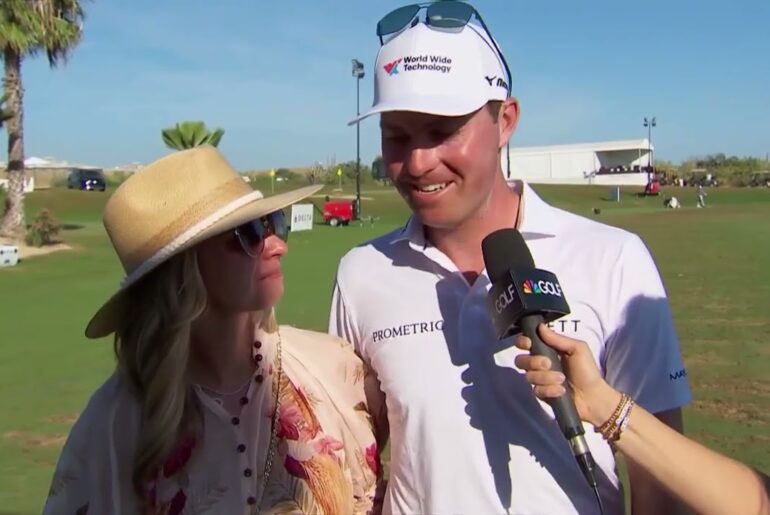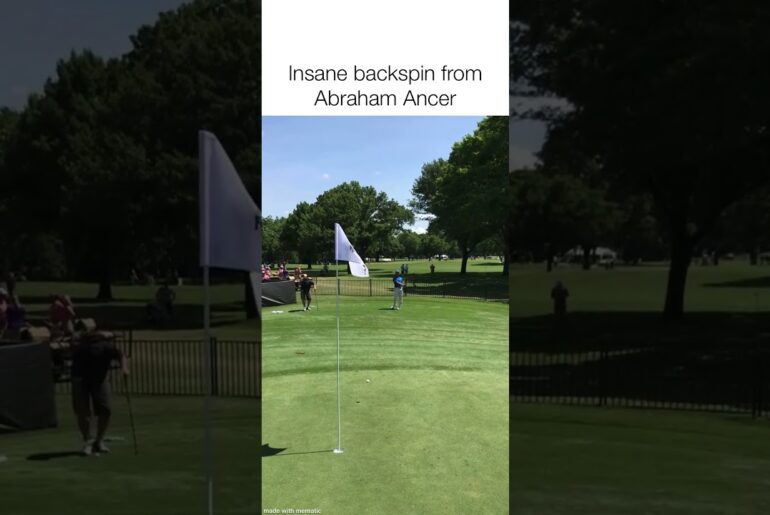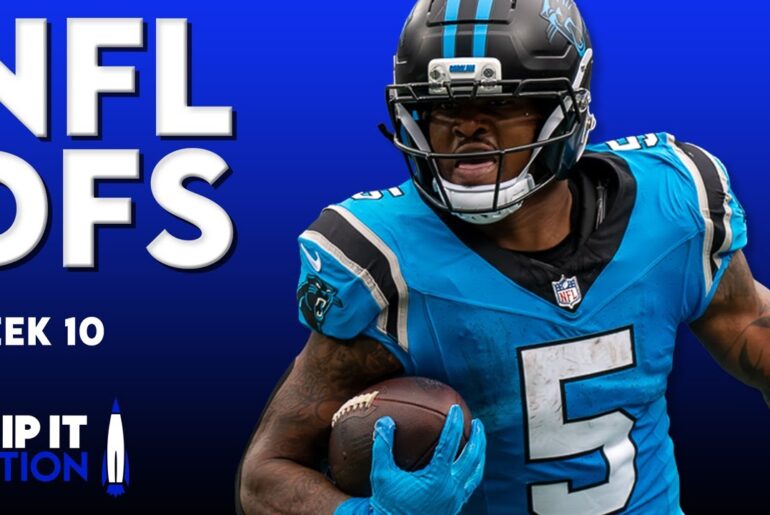💰 They took the money, walked away from tradition, and helped ignite golf’s biggest revolution. But now, years later… some LIV golfers are realizing the cost of leaving the PGA Tour was higher than anyone expected.
Which golfer do you think made the biggest mistake? Comment below — and if you love deep dives into golf’s luxury, money, and power battles, hit Subscribe for more exclusive Fairway Fortunes videos every week.
#LIVGolf #PGATour #GolfNews #PhilMickelson #JonRahm #BrooksKoepka #GolfDocumentary #FairwayFortunes
They said money changes everything. And in golf, it did. When the first wave of PGA stars defected to live golf, the world watched in shock. Overnight, golfers who built their legacies on fairways lined with tradition were trading green jackets for guaranteed millions. But now, a few years later, that money doesn’t shine quite the same. Behind the closed doors, the rumors have started. Regret, isolation, fading fame. Because when you take the money, you also take what comes with it. Today, we’re counting down the top 10 live players who regret leaving the PGA. The ones who chased fortune but may have lost something far more valuable. And trust me, the biggest names on this list might surprise you. Dustin Johnson was the ultimate cool customer. Calm, collected, nearly untouchable. Two majors, a FedEx Cup title, and a fan base that loved his effortless power. Then Liv came knocking with a reported $125 million deal, and DJ said yes without hesitation. For a moment, it looked brilliant. Play less, earn more. But that spotlight gone. Sponsors quietly stepped back. His fan recognition slipped. And with Liv’s limited broadcast reach, the man once ranked number. One in the world now plays to half empty galleries and a fraction of the audience he once commanded. He still cashes checks, but the roar of the crowd that’s gone. And as one golf insider put it, DJ didn’t lose his swing. He lost the stage. Sergio Garcia left the PGA tour in anger, not excitement. Fed up with officials, he famously told a rules marshal at the 2022 Wells Fargo, “I can’t wait to leave this tour.” And he did, signing with Liv soon after. But that spark that once made Sergio one of golf’s great emotional players, it faded fast. No Ryder Cup, no meaningful contention at majors. And suddenly, the Spaniard who once battled Tiger under the lights of golf’s biggest stages became irrelevant. Even worse, his world ranking plummeted so low that qualifying for majors became nearly impossible. Fans say Sergio’s swing is still pure, but his presence, that fire, has all but vanished. And the irony, the man who left the PGA in frustration now spends most of his time talking about how much he misses it. Pat Perez never pretended to be a saint. He was raw, outspoken, and proud of his hustle. But when Liv offered him roughly $10 million guaranteed, Perez took it and became the target of ridicule. Critics said he sold out his legacy. Others said he didn’t have one to protect. But behind the scenes, Perez admitted the transition wasn’t as glamorous as it looked. Limited team events, less competitive fire, and in his own words, too much downtime. He told reporters he missed the grind of the PGA tour, the weekly chaos, the travel, the pressure. Ironically, the man who said he joined Liv for more free time realized he didn’t actually want it. Mark Leechman wasn’t controversial. He he was respected when he left for Liv alongside Cameron Smith. Fans understood Australia had been under reppresented and Liv was promising world exposure. But in reality, Leechman got the opposite. Without world ranking points, he fell out of the top 100 for the first time in years. He later admitted he missed the majors and that it was hard not being in the conversation anymore. That’s the hidden truth about live. You can earn millions, but if you’re not playing Augusta, the Open, or the Rder Cup, the golf world forgets your name. For Leechman, the paycheck didn’t replace the purpose. Bryson was golf’s mad genius. The scientist who bulked up, chased 200 mph ball speeds, and treated the game like a physics problem. When he joined Liv, he called it a once-in-a-lifetime opportunity to grow the game differently. But when the novelty faded, so did the numbers. sponsors pulled back. YouTube views plateaued. His social following, once obsessed with his distance revolution, drifted toward other stars. In 2024, Bryson confessed to media that he’d learned a lot about decisions and timing. He didn’t say regret, but he didn’t have to. You could hear it in his tone. The man who once wanted to change golf now seems to just want back in. Few golfers had a bigger aura than Brooks Kepka. The guy lived for majors. Said he only practiced for them. bragged that regular tournaments didn’t matter. Then he joined Liv. He claimed it was about family, about his health, about a new chapter. But in private interviews, Brooks admitted that after his early Liv events, I wasn’t happy. He missed the adrenaline of competing for something bigger than a paycheck. Even his fifth major win in 2023 couldn’t hide it because winning one week a year doesn’t fill the silence of all the other weeks that don’t matter. The competitor in him still wants a fight, but on Liv, it’s hard to find one. Cameron Smith had the golf world in his hands, 2022 Open champion, players champion, and the swagger to match. Then he took a reported $100 million from Liv and vanished. Fans rarely saw him play. PGA broadcast highlights, fan posts, even social media algorithms stopped showing him. He told one Australian outlet that the hardest part wasn’t leaving the tour. It was feeling invisible. His open win should have been the start of superstardom. Instead, it became a time capsule. The last moment the world truly saw Cameron Smith at his peak. Money can buy comfort, but it can’t buy relevance. Taylor Gu didn’t have the name recognition of a Mickelson or ROM, but he was one of the PGA’s rising stars. Then, Liv offered life-changing money, and Gued. At first, it worked. He won multiple Liv events and looked unstoppable. But when the majors came calling, things changed. Gu was denied entry to the 2023 US Open and Masters because his world ranking plummeted outside the cutoff. He called it a joke. The rest of the golf world called it the cost of choice. Now Gu sits in limbo, too good to disappear, but too far gone to matter in the sport’s biggest moments. It’s the perfect example of how Liv’s short-term money clashes with long-term legacy. John Rom’s move shocked the world. He had sworn loyalty to the PGA called Live Not My Thing and criticized others for defecting. Then came reports of a $500 million contract, and Rahm suddenly changed his tune. He said it wasn’t about money, but the world knew otherwise. Now, a year later, Whispers suggest Rahm is restless. Reports claimed he privately admitted missing the competition, the intensity, and yes, the fans. Rahm denied those rumors, calling them media nonsense. But several journalists insist insiders close to him say otherwise, that he’s frustrated with the league’s structure, its team drama, and the fading energy around each event. He went from being the emotional core of the PGA Tour to just another name on a franchise team roster. And the more he denies regret, the more people believe it’s real. Phil Mickelson didn’t just join Liv, he ignited it. He was the movement’s face, the rebel who challenged the PGA and walked away with a rumored $200 million deal. But in doing so, he destroyed something he spent 30 years building, his reputation. Sponsors vanished overnight. The media turned on him. Even his once adoring fans questioned his motives, and over time, the smile faded. Mickelson’s performances dropped. His interviews grew quieter. And his presence, once electric, became heavy with tension. In one rare admission, he told reporters he was grateful but misunderstood. That’s as close as he’s come to saying it outright. That maybe, just maybe, the price of freedom was too high. Phil didn’t just leave the PGA, he burned the bridge. And sometimes you can’t rebuild what’s already turned to ash. Beyond the big names, there’s a quieter story playing out. Caddies who lost consistent income, support staff who lost their livelihoods, fans who no longer know where to watch. The ripple effect of Liv wasn’t just money. It was identity. For decades, the PGA was golf’s heartbeat. Liv promised to change that, but in doing so, fractured something sacred. And now, even players who say they have no regrets sometimes sound like they’re trying to convince themselves. When Liv burst onto the scene, it was sold as golf’s revolution. More freedom, more money, more innovation. But for many players, it became something else. A golden cage. You could play less golf, earn more money, and still lose everything that truly made you matter. legacy, history, connection, and the lesson. Regret doesn’t always scream. Sometimes it whispers through silence. So, the question for every golfer, and maybe for all of us, remains, would you rather be rich and forgotten or remembered forever? If you enjoyed this breakdown, hit subscribe for more stories from Inside Golf’s Billiondoll power struggle, where fortunes rise, fall, and sometimes regret never leaves the green. [Music]








7 Comments
dechambeau and koepka are exempt only liv contract keeping them out money changes everything
Liv destroy the good weekend golf and we lost the good players sorry i 'm 76 years old, and Pga didn't lost the fight
Winning LIV event adds nothing to your legacy.The only people that care are the player,his caddie and his immediate family.
Congratulations, you chose MONEY 🤔
How ya like it now 🤔
Now where are you going to play, without getting Booed off a Golf course ✝️🇺🇸🤨🤨🤨🤨🤨
Not really, players like Phil and Sergio were past their best, and they've set their families up for life.
But these guys had money anyway, the real winners are the other guys to jumped, plenty of them got bigger LIV signing on fees than lifetime PGA earnings.
Just getting back to golf after raising my kiddo. I can't stand watching the PGA or LIV. YouTube Golf is more entertaining and engaging. I don't blame any of the golfers who jumped to LIV for the big payday. I have enjoyed watching Phil playing with Grant Horvat more than I ever enjoyed watching the PGA. These guys are living a dream life and are really just athletes and entertainers…why everyone gets to upset about their personal choices is beyond me.
They all regret leaving but they got a lot of money to so so.